Aleppo pepper is one of those spices that sneaks up on you—it’s not just about heat, it’s about flavor. With its mild spiciness, fruity undertones, and slightly smoky finish, it’s a favorite in Middle Eastern and Mediterranean cooking. Sprinkle it over eggs, mix it into marinades, or stir it into soups, and suddenly the dish feels more alive. But here’s the problem: Aleppo pepper isn’t always easy to find. I’ve had moments when I craved its gentle kick, only to discover my jar was empty. Thankfully, several substitutes can step in and do the job without ruining your recipe.
Why Look for an Aleppo Pepper Substitute?
Aleppo pepper (also called Halaby pepper) has a unique flavor: about half as hot as regular chili flakes, with a touch of sweetness and tang. It’s often sold crushed with a bit of salt and oil to keep it moist. When substituting, the goal isn’t just to replace the heat but also to balance flavor, fruitiness, and smokiness.
1. Crushed Red Pepper Flakes (with a Twist)
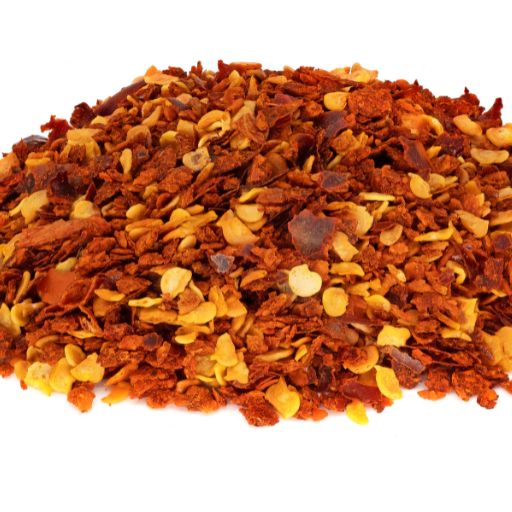
Plain red pepper flakes are hotter than Aleppo pepper, but they’re easy to adjust. Use half the amount of red pepper flakes, then mellow them out with a pinch of salt and a drizzle of olive oil. This combo gets you closer to Aleppo’s flavor and texture.
2. Paprika + Cayenne Mix
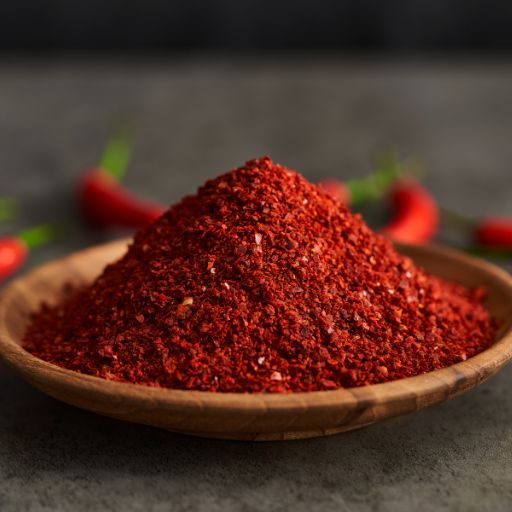
Paprika adds smokiness and sweetness, while cayenne brings the heat. Mix 4 parts paprika with 1 part cayenne, and you’ll have a balanced blend that mimics Aleppo pepper’s fruity warmth. This substitute shines in stews, roasted veggies, and rubs.
3. Ancho Chili Powder
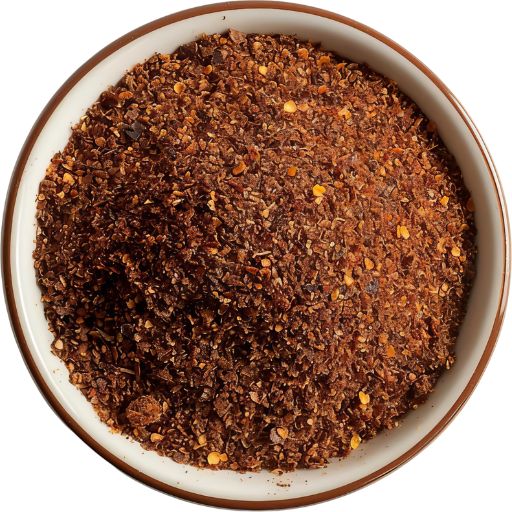
Ancho chili powder, made from dried poblano peppers, has a mild heat with a sweet, raisin-like flavor. It’s less sharp than cayenne and makes a great stand-in for Aleppo in sauces, soups, and marinades. Use it one-to-one for a softer, more complex flavor.
4. Marash Pepper
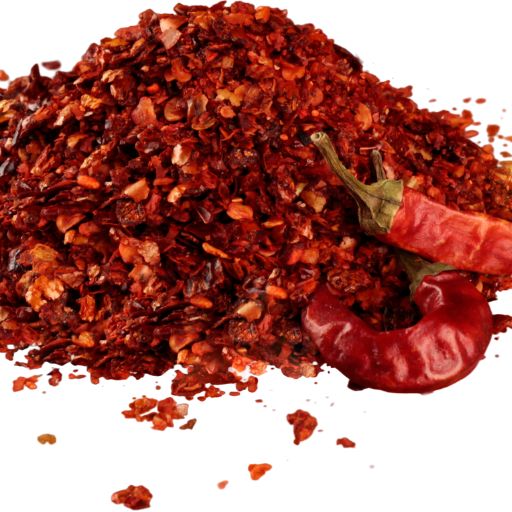
Marash pepper is another Middle Eastern chili similar to Aleppo, though slightly smokier and moister. If you can find it, this is the closest substitute. Use it in equal amounts for eggs, grilled meats, or vegetables.
5. Chipotle Powder
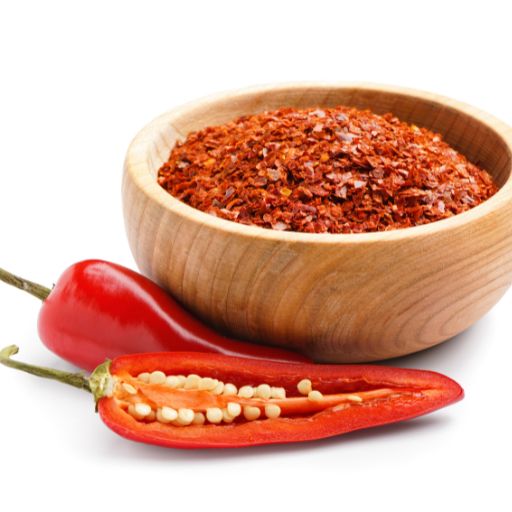
Chipotle powder packs a smoky, earthy punch with medium heat. It’s stronger than Aleppo, so use half the amount. It works well in barbecue rubs, chili, or bean stews where smokiness is a bonus.
6. Gochugaru (Korean Chili Flakes)
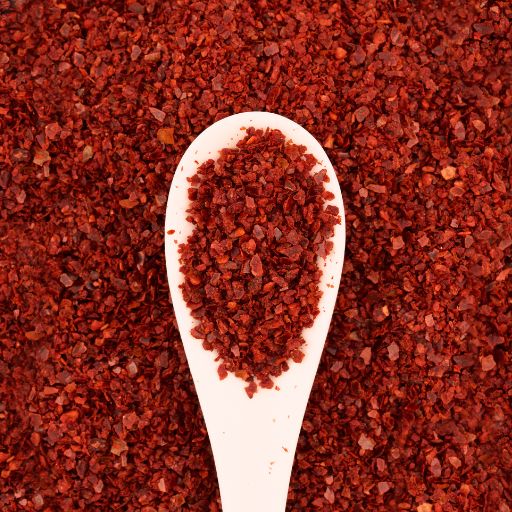
Gochugaru is fruity, mildly spicy, and often used in kimchi. It’s similar in heat to Aleppo pepper and has a slightly sweet undertone. Use it in equal amounts for soups, stir-fries, or even eggs. It won’t be identical, but it keeps that balance of heat and flavor.
7. Chili Powder (American Blend)
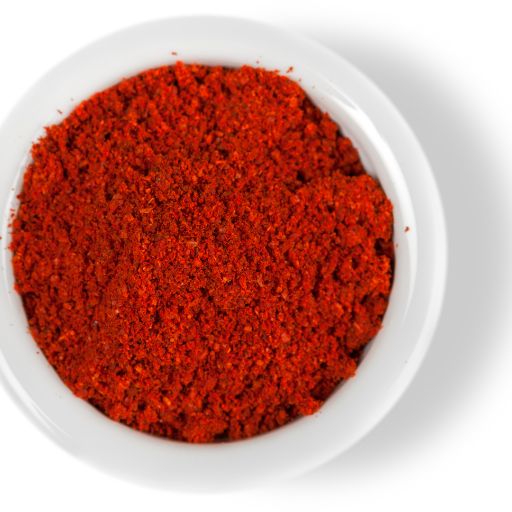
If all else fails, chili powder blends (often with paprika, cumin, garlic powder, and cayenne) can stand in. They’re more complex than Aleppo pepper, but they add warmth and spice. Use it sparingly and adjust based on your dish.
Tips for Using Aleppo Pepper Substitutes
- Start small: Many substitutes (like cayenne or chipotle) are stronger than Aleppo.
- Adjust texture: If your substitute is too dry, mix with a touch of olive oil to mimic Aleppo’s moist, flaky consistency.
- Match the dish: Use gochugaru or ancho for mild, fruity heat; chipotle for smokiness; red pepper flakes for convenience.
Final Thoughts
Aleppo pepper might be unique, but your dish won’t suffer without it. From a paprika-and-cayenne mix to fruity ancho powder or smoky chipotle, there’s always a way to keep that balance of heat and flavor. Personally, I reach for paprika and cayenne—it’s quick, easy, and always in my kitchen. Next time you’re out of Aleppo pepper, try one of these seven substitutes and keep your recipe lively and delicious.

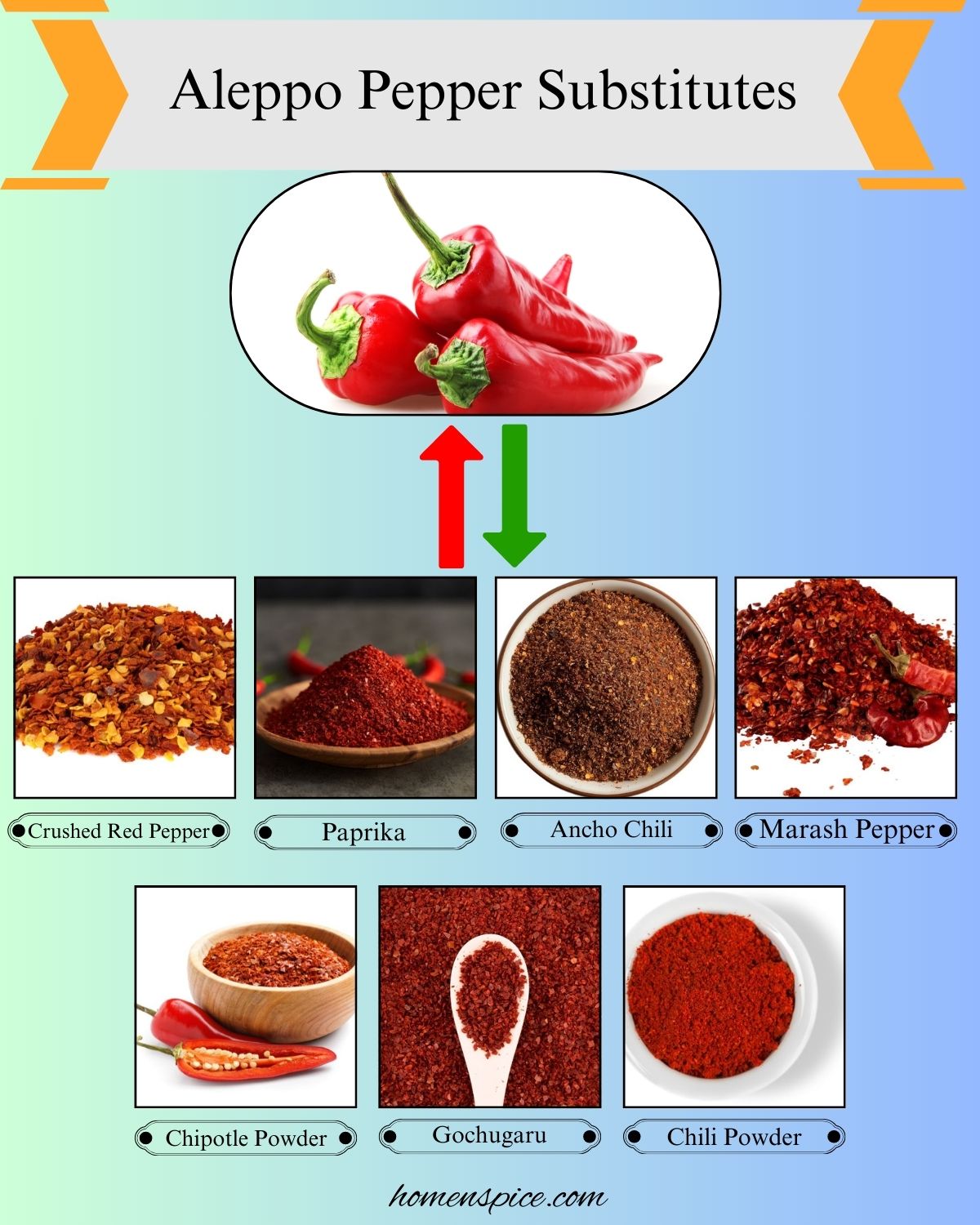





Leave a Reply